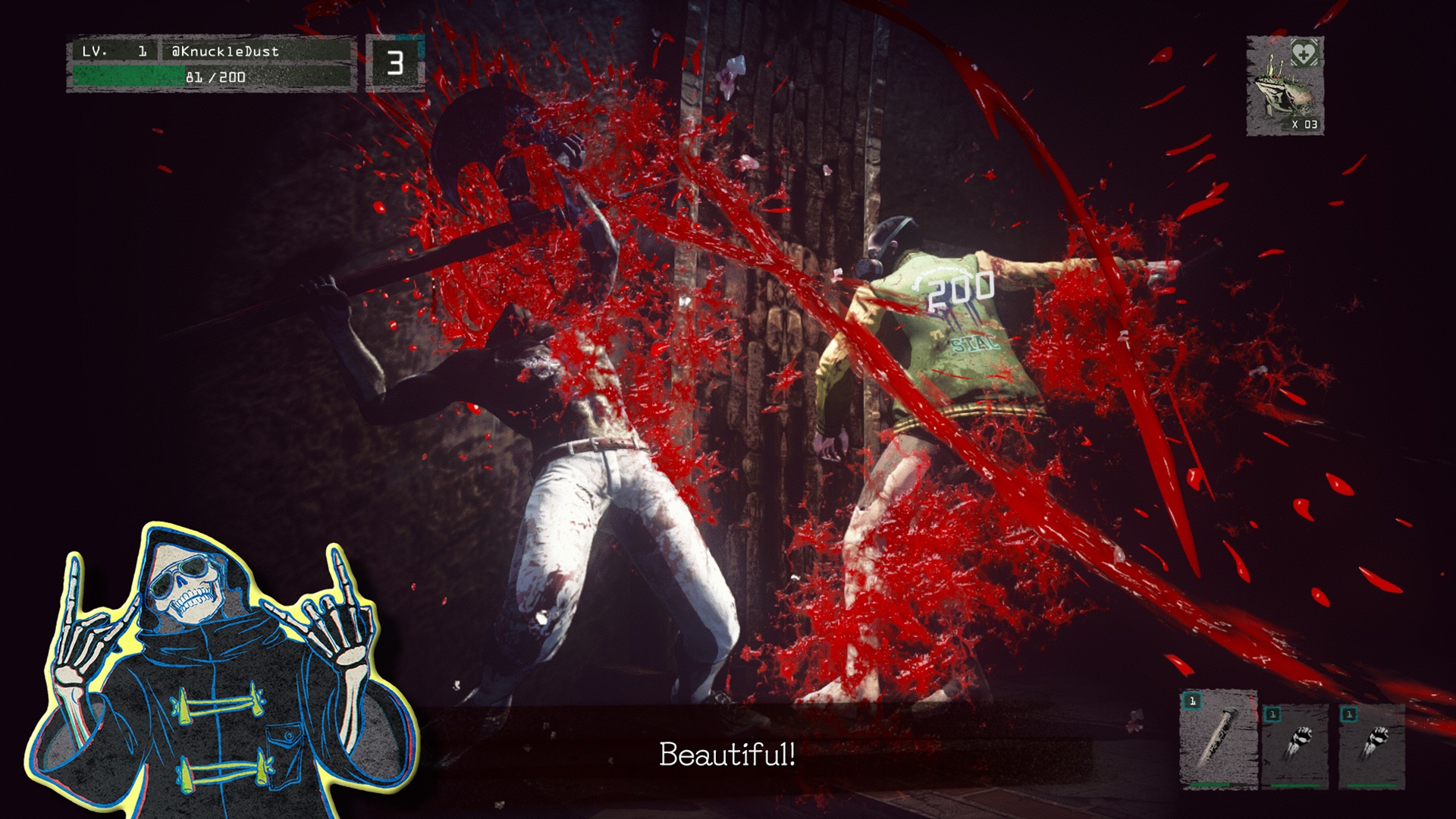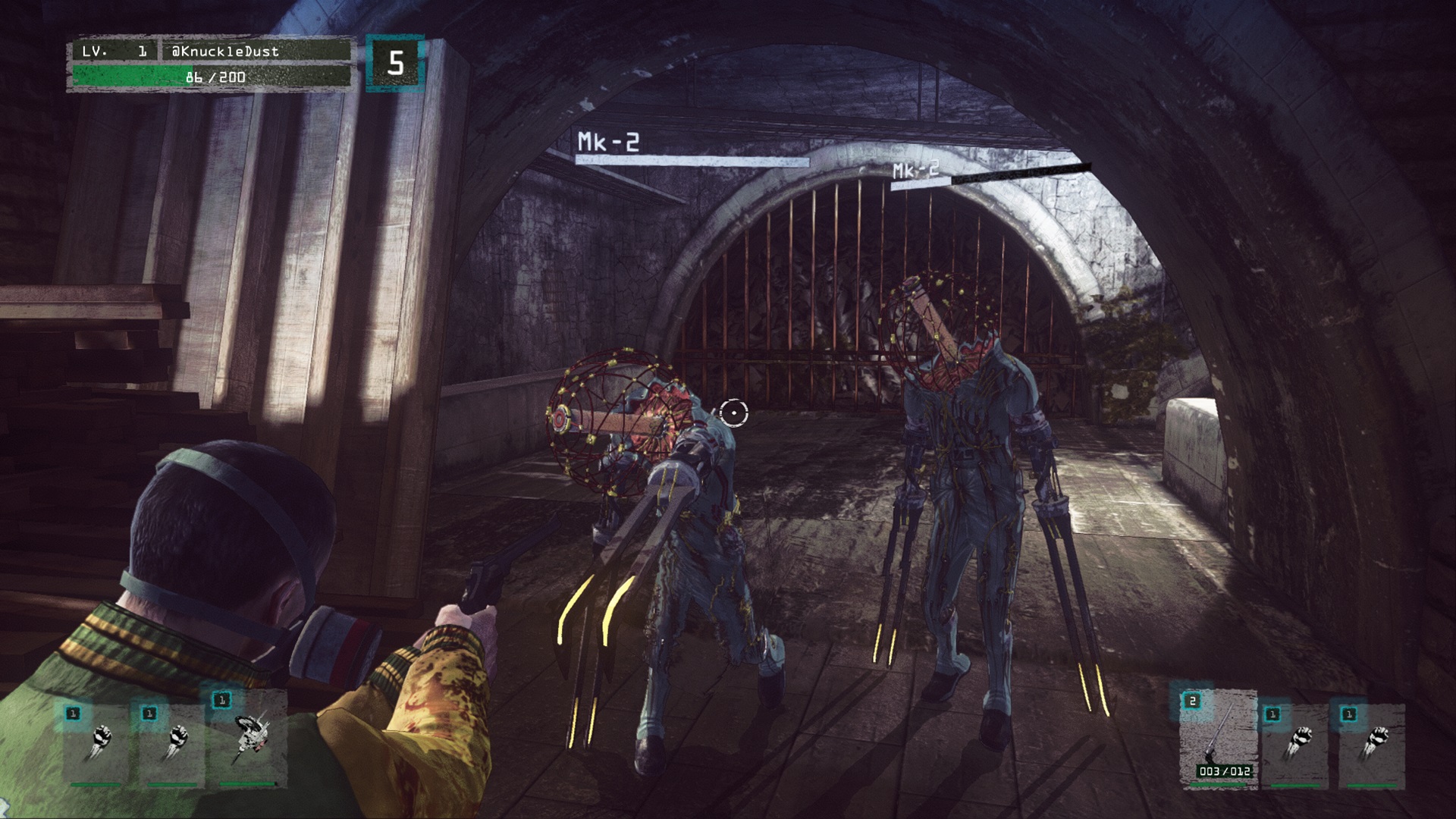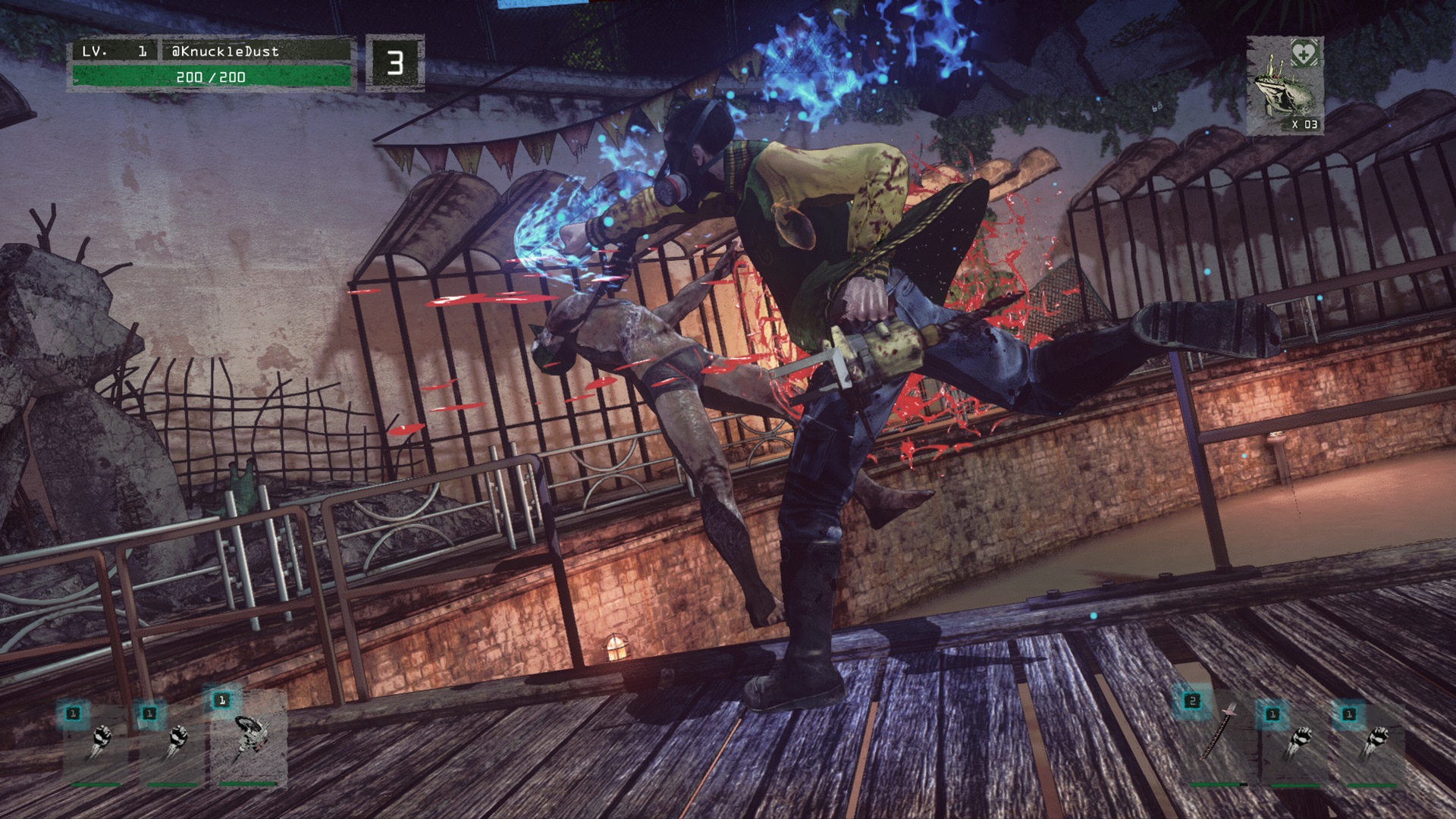Let It Die is a free-to-play, grindhouse Dark Souls-like from the twisted minds behind No More Heroes
The E3 2014 trailer for Let It Die did not fill me with a lot of confidence. Gonzo game developer Suda 51 and his studio Grasshopper Manufacture are known for combining stylized violence with a twisted sense of humor, and you can see that DNA in cult hits like Shadows of the Damned, Killer7, and No More Heroes. The trailer for Let It Die seemed to get the violent bits right, but was lacking the bizarre wit and charm of Suda's previous games. Combine that with a simultaneously announced online free-to-play model along with a recent acquisition by Puzzle & Dragons developer GungHo, and something about the whole project felt way too soulless for a studio known for blindsiding its fans with the unexpected.
The problem with free-to-play is that it comes with certain expectations. The biggest one, of course, is the potential for a paywall - a giant roadblock that will only let people who pony up a few dollars progress with relative ease, leaving the rest to deal with incessant timers or grinding through content just to make it to the next stage. Then there's the inherent nature of free-to-play's focus on either smaller games (like GungHo's own mobile titles), or online multiplayer experiences like League of Legends. All of this would seem to run counter to Grasshopper's own strengths, which are in crafting absurdist narratives around memorable boss fights and unique action mechanics.
Cut to two years later. I'm at PAX East, and I'm about to demo Let It Die for the first time. I'm not particularly excited about it, but it's Suda 51, so I'm hopeful it's going to surprise me in some way. Imagine my excitement when it actually did, especially when I discovered that Let It Die is a free-to-play take on the survival action genre, a grindhouse Dark Souls where the grim reaper rides around on a coffin-shaped skateboard. It feels like a Grasshopper Manufacture game through-and-through.
When I first started the demo, I thought Let It Die was a more frantic hack-and-slash, and died almost immediately (Suda was watching over my shoulder and laughed which, I mean, fair). That's when I picked up on how its combat is paced much more like Dark Souls, and if you've played that series (or any of the dozens of games that have come out in recent years like it), you'll probably recognize a lot of what it has to offer. A lot of the same tactics from Dark Souls apply - slowly goad one enemy at a time toward you, finish it off, then move on to the next.

That's where the similarities end, though. Rather than wending through a European gothic fantasy castle, you're exploring a massive tower made out of a dense bundle of ruined skyscrapers, roller coasters, and other carnival ephemera. Instead of broadswords and suits of armor, you'll pick up fully-automatic rifles, spiked baseball bats, and a variety of clothing and makeshift armor plating that wouldn't look too out of place in a Mad Max film. To refill your health, you'll kick frogs you find hopping around and chow down (careful you don't eat anything poisoned, or you'll have to force yourself to throw up before you lose all your health). Oh, and each level is procedurally generated; hallways that once led you toward the boss could end up a dead-end the next time you play.
It's a strange game, and that kind of strangeness almost makes it a perfect fit for a free-to-play structure. Suda's brand of anime violence by way of filmmaker Seijun Suzuki's surrealism isn't exactly mainstream - and he's hoping that by making it free-to-play, more people than ever will have a chance to try it out. "Of course, free-to-play is a new business model for Grasshopper games, and it kind of eases players in, because you can just download it and get into it," Suda explains. "So of course a lot of people can come in and start, which is easy compared to [other retail games], but from then on you can see it's really hardcore, and it's really deep, and there are a lot of things that go into it."

Even with the free-to-play structure, Suda is still trying to make the games his studio is known for - which, of course, means ridiculous boss fights. "A lot free-to-play games don't really have boss fights," he says, "and so with this, although we're going to have a game which is going to have continuous content, we're going to also throw in something we're really good at, something we're known for [which is] having story driven content with a boss fight." And while I ended up dying before making it to the boss, I watched others try to take him out, which required studying his moves, avoiding his hard-hitting attacks, and waiting for the opportune moment to strike.
Weekly digests, tales from the communities you love, and more
Details were scarce on how the story will ultimately play out, or even how important features like its asynchronous multiplayer or free-to-play economy would work within Let It Die, though. During my playthrough, I noticed that you have a limited set of continues available to you, and each time you die, you're able to use one to pick up right where you got killed. Lose all your continues, and you have to start the level all over - which, of course, means that the stage is shuffled around and regenerated for you once again. It's uncertain as to whether those continues will be available for purchase or earned during play, but I was told that the free-to-play economy would give players a chance to get a leg up on some of the grindier aspects of the game, without becoming to a 'pay-to-win' option.

Of course, that's always the goal. Unfortunately, the reality can be much different, and how Let It Die will walk that line is currently the biggest question mark surrounding it right now. Without knowing how its pricing structure works or how multiplayer factors into the bigger picture (which could allow players to buy their way to victory over others if not implemented correctly), it's hard to say whether Grasshopper's first foray into the free-to-play market will be successful. But I will say this: even with my unabashed love for Suda 51's games, I walked into that demo a skeptic, and I walked out eager to know more.
Let It Die will launch on PlayStation 4 later this year.



